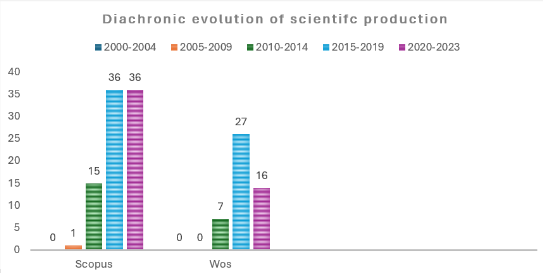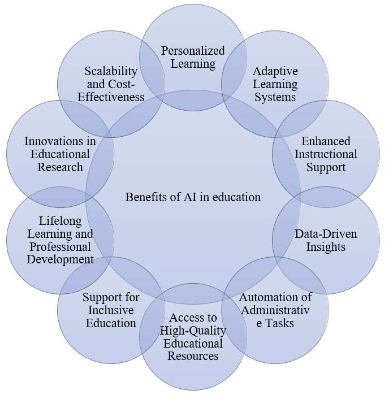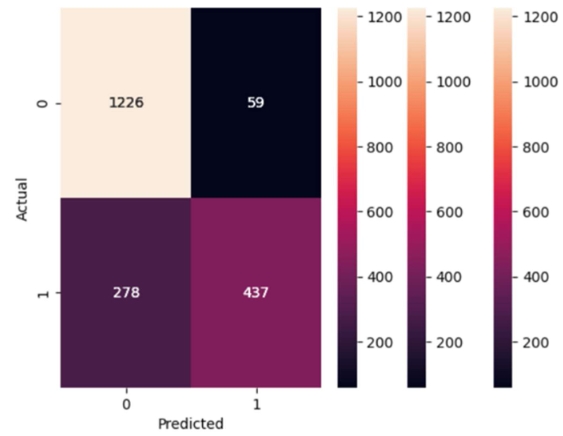A journey through time: Exploring Afro-futurism and Igbo cultural heritage in elementary education
Abstract
This study explored the significance of including the study of some unrecognized Igbo cultural heritage into the primary education curriculum through the lens of Afrofuturism/African futurism. Drawing from data sourced from interviews conducted among individuals aged 75 years and above, this study illuminates the cultural, nutritional, and educational dimensions of integrating these elements into early education. From an Afrofuturist perspective, education serves as a vehicle for cultural preservation, empowerment, and envisioning alternative futures rooted in African heritage. The inclusion of this yet to be recognized aspect of Igbo cultural heritage in the curriculum not only imparts knowledge of traditional culinary practices and medicinal uses but also fosters a sense of cultural pride and connection among younger generations. By engaging these Igbo cultural heritage with students at a young age, they will develop a deeper understanding of their cultural identity and heritage, which will contribute to a more inclusive and diverse educational experience. More so, the study highlights the potential benefits of integrating indigenous knowledge systems into formal education, promoting sustainability, environmental stewardship, and community resilience. Through hands-on learning experiences related to agriculture, nutrition, and cultural studies, students are equipped with practical skills and critical thinking abilities essential for navigating future challenges like how to improve scientifically the use of the seeds and vegetables mentioned for the betterment of humans’ health as well as checkmate the abuse of them through unconscious overdose usage by people which leads to the damages of the organs of the body. In conclusion, integrating the study of indigenous vegetables and seeds into the primary education curriculum offers a transformative opportunity to cultivate cultural identity, foster intergenerational knowledge transfer, and advance Afrofuturist/African futurist visions of inclusive, empowered futures for African societies.
References
[1]Ladson-Billings G. Culturally relevant pedagogy: Asking a different question. Teachers College Press; 2021.
[2]Chukwu E, Dogbe W. The cause and effect of the nutrition transition in Nigeria: analysis of the value of indigenous knowledge and traditional foods in Enugu State, Igboland. Journal of Ethnic Foods. 2023; 10(1). doi: 10.1186/s42779-023-00198-z
[3]Carter A. Sowing Seeds of Sovereignty: A Qualitative Exploration of Chapter Leader Experiences Who Belong to an African, Caribbean, and Black Women’s Agriculture Advocacy Collective. Journal of Racial and Ethnic Health Disparities. Published online September 5, 2023. doi: 10.1007/s40615-023-01777-1
[4]Dean M. Exploring Ethnobotanical Knowledge: Qualitative Insights into the Therapeutic Potential of Medicinal Plants. Golden Ratio of Data in Summary. 2024; 4(2): 06-18. doi: 10.52970/grdis.v4i2.491
[5]Dost G, Mazzoli Smith L. Understanding higher education students’ sense of belonging: a qualitative meta-ethnographic analysis. Journal of Further and Higher Education. 2023; 47(6): 822-849. doi: 10.1080/0309877x.2023.2191176
[6]Gutierrez BV, Kaloostian D, Redvers N. Elements of Successful Food Sovereignty Interventions within Indigenous Communities in the United States and Canada: A Systematic Review. Current Developments in Nutrition. 2023; 7(9): 101973. doi: 10.1016/j.cdnut.2023.101973
[7]Ikhoyameh M, Okete WE, Ogboye RM, et al. Integrating traditional medicine into the African healthcare system post-Traditional Medicine Global Summit: challenges and recommendations. The Pan African Medical Journal. 2024; 47. doi: 10.11604/pamj.2024.47.146.43011
[8]Achebe C. Things Fall Apart. Penguin Books; 1958.
[9]Alagbe OA, Alagbe GO, Adekunle EA, et al. Ethnomedicinal Uses and Therapeutic Activities of Piper Guineense: A Review. Journal of Applied Sciences and Environmental Management. 2021; 25(6): 927-937. doi: 10.4314/jasem.v25i6.6
[10]Mgbeahuruike EG. Evaluation of the Medicinal Uses and Antimicrobial Activity of Piper guineense [PhD thesis]. University of Helsinki; 2019.
[11]Ojinnaka MC, Odimegwu EN, Chidiebere FE. (2016). Comparative Study on the Nutrient and Antinutrient Composition of the Seeds and Leaves of Uziza (Piper Guineense). IOSR Journal of Environmental Science, Toxicology and Food Technology. 2016; 10(08): 42-48. doi: 10.9790/2402-1008014248
[12]Womack Y. Afrofuturism: The world of black sci-fi and fantasy culture. Lawrence Hill Books; 2013.
[13]Bryan E, Alvi M, Huyer S, et al. Addressing gender inequalities and strengthening women’s agency to create more climate-resilient and sustainable food systems. Global Food Security. 2024; 40: 100731. doi: 10.1016/j.gfs.2023.100731
[14]Amabie T, Izah SC, Ogwu MC, et al. Harmonizing Tradition and Technology: The Synergy of Artificial Intelligence in Traditional Medicine. In: Herbal Medicine Phytochemistry. Springer International Publishing; 2024. pp. 2103-2125.
[15]Dery, M. Flame wars: the discourse of cyberculture. Duke University Press; 1994.
[16]Eshun K. Further Considerations of Afrofuturism. CR: The New Centennial Review. 2003; 3(2): 287-302. doi: 10.1353/ncr.2003.0021
[17]Morris SM. Black Girls Are from the Future: Afrofuturist Feminism in Octavia E. Butler’s Fledgling. WSQ: Women’s Studies Quarterly. 2012; 40(3-4): 146-166. doi: 10.1353/wsq.2013.0034
[18]Yaszek L. Afrofuturism, science fiction, and the history of the future. Socialism and Democracy. 2006; 20(3): 41-60. doi: 10.1080/08854300600950236
[19]Afigbo. The Igbo People: Their Origin and Culture Area. Ethiope Publishing Corporation; 1972.
[20]Shaw T. Igbo-ukwu: An Account of Archaeological Discoveries in Eastern Nigeria. Oxford University Press; 1977.
[21]Isichei E. The Igbo and Their Neighbours: Inter-group Relations in Southeastern Nigeria to 1953. University Press; 1983.
[22]Ugonna, N. The Igbo-Igala Borderland: Religion and Social Control in Indigenous African Colonialism. University of California Press; 2005.
[23]Adichie CN. Purple Hibiscus. Algonquin Books; 2003.
[24]Emecheta B. Second Class Citizen. George Braziller Inc; 1974.
[25]Ike C. Toads for Supper. Toads for Supper; 1965.
[26]Ike C. Sunset at Dawn. University Press, Nigeria; 1976.
[27]Nwapa F. Efuru. Waveland Press, Inc; 1966.
[28]Wallace C. Why “Black Panther” is a defining moment for Black America. The New York Times. 2018.
[29]Sions H. Teaching about racially diverse artists and cultures [PhD thesis]. Virginia Commonwealth University; 2019.
[30]Winchester WWIII. Black Panther, engineering, and Afrofuturism. Available online: https://www.aaihs.org/black-panther-engineering-and-afrofuturism/ (accessed on 2 June 2023).
[31]Love B. We want to do more than survive: Abolitionist teaching and the pursuit of educational freedom. Beacon Press; 2019.
[32]Jernigan VBB, Taniguchi T, Nguyen CJ, et al. Food Systems, Food Sovereignty, and Health: Conference Shares Linkages to Support Indigenous Community Health. Health Promotion Practice. 2023; 24(6): 1109-1116. doi: 10.1177/15248399231190360
[33]Suarez‐Balcazar Y, Balcazar F, Miranda DE, et al. Promoting justice through community‐based research: International case studies. American Journal of Community Psychology. 2022; 69(3-4): 318-330. doi: 10.1002/ajcp.12584
[34]Fong CJ, Owens SL, Segovia J, et al. Indigenous cultural development and academic achievement of tribal community college students: Mediating roles of sense of belonging and support for student success. Journal of Diversity in Higher Education. 2021.
[35]Vázquez-Villegas P, Ruiz-Cantisani MI, Caratozzolo P, et al. Preserving World Cultural Heritage: Social Justice and Sustainability Competencies via Socially-Oriented Interdisciplinary Education. Journal of Teacher Education for Sustainability. 2022; 24(1): 49-72. doi: 10.2478/jtes-2022-0005
[36]Ani O, Omenyi S, Achebe C. The Effects of Antiretroviral Drugs on the Absorbance Characteristics of HIV-Infected Blood. Journal of Biomedical Science and Engineering. 2015;8(09):571.
[37]Oladunjoye IO, Tajudeen YA, Oladipo HJ, et al. Planetary Health and Traditional Medicine: A Potential Synergistic Approach to Tackle Antimicrobial Resistance. Challenges. 2022; 13(1): 24. doi: 10.3390/challe13010024
[38]Mbah CA, Anibeze CIP, Ndukwe GU, et al. Effects of Ethanolic Leaf Extract of Piper Guineense (Uziza) On the Liver of Paraquat Induced Adult Male Wistar Rats. Japan Journal of Clinical & Medical Research. 2022.
[39]Mahmud TMM. A review: medicinal values, agronomic practices and postharvest handlings of Vernonia amygdalina. Food Research. 2019; 3(5): 380-390.
[40]Ikotun AA, Awosika OO, Oladipo MA. The African black soap from Elaeis guineensis (Palm kernel oil) and Theobroma cacao (Cocoa) and its transition metal complexes. African Journal of Biotechnology. 2017; 16(18): 1042-1047. doi: 10.5897/ajb2015.14975
[41]Ługowska A. (2014). The art and craft divide—on the exigency of margins. Art Inquiry. Recherches Sur Les Arts. 2014; 16: 285-296.
[42]López V, Pereira A, Rao SS. Baltimore Uprising: Empowering Pedagogy for Change. Art Education. 2017; 70(4): 33-37. doi: 10.1080/00043125.2017.1317555
Copyright (c) 2024 Amaka Yvonne Okafor

This work is licensed under a Creative Commons Attribution 4.0 International License.









